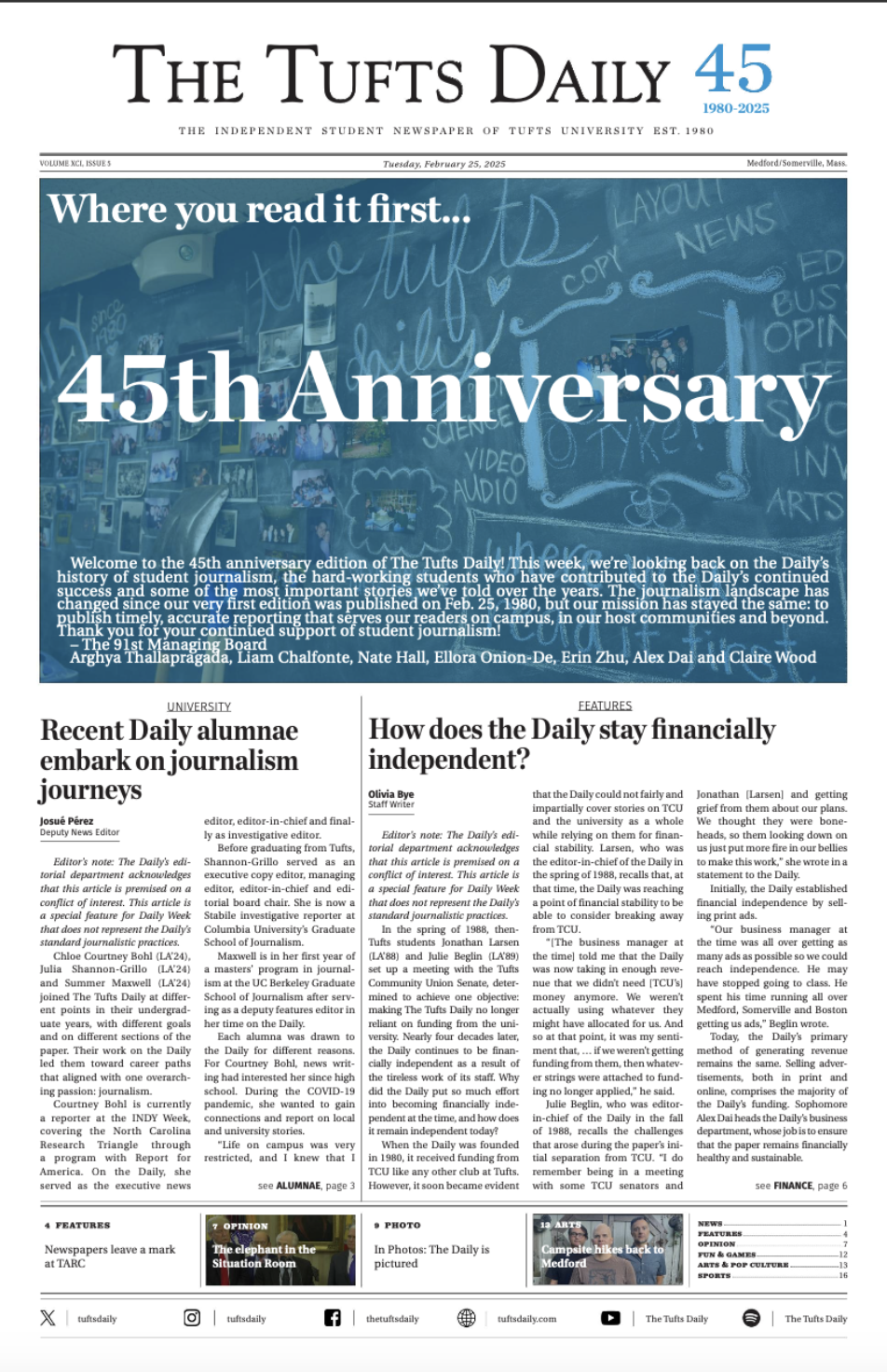One might enter a theater to see "The Nativity Story" thinking they know exactly what to expect. After all, like Mel Gibson's controversial "The Passion of The Christ" (2004), director Catherine Hardwicke's newest film takes place two thousand years ago and boasts a rather familiar cast of characters: this time, an inconspicuous pair of parents named Mary (Keisha Castle-Hughes) and Joseph (Oscar Isaac).
While not nearly as dramatic or violent as "The Passion," "The Nativity Story" makes its own statements and proves to be equally relevant, as well as poignantly beautiful.
The basic story is clearly straight from the New Testament, spanning from Mary's innocent childhood delights to the birth of her son about one year later. Added to the mix is new attention to the three wise men's discovery of and journey to Bethlehem, where they predicted Jesus' birth would occur. The neurotic King Herod (Ciarán Hinds) who fears being overthrown, a fear inspired by a prophecy from ancient times that is set to come to fruition any day now. The plot, while complex, is hardly suspenseful for anyone even remotely familiar with the Bible; if it ain't broke, don't fix it.
One interesting choice that the filmmakers made was to use the three wise men as comic relief. Unfortunately, the traveling astrologists have great wisdom, not wit. Their juvenile and overly simple jokes are far less than hilarious.
Otherwise, the writing is wonderful. What else would one anticipate from writer Mike Rich whose r?©sum?© includes successful films, like "The Rookie" (2002) and "Finding Forrester" (2000). Not only has Rich come up with many dramatic tidbits, but more importantly, he has created realistic conversation between iconic figures. "The Nativity Story" could do without the rarely well-done voiceover narration, but it is an understandable move, as the characters experience so much while saying very little.
The film's direction is also laudable. Innumerable well-composed shots could have been taken straight out of the Louvre, with many exploring a romantic side to Mary and Joseph's marriage as well as the extraordinary birth of their son.
One directorial misstep: Though the movie is entirely in English, all of the actors use what one imagines is an ancient Aramaic accent. Only God knows why the director would allow the actors' uninformed accents to distract from their performances.
Predictably, as "The Nativity Story" does not stray too far from the established biblical history, there are fantastical elements. Mary's guide, an angel, is capable of transforming into a hawk without a moment's hesitation. The wise men, of course, somehow know of Jesus' coming. These preternatural components are supported by the actors' realistic portrayals of the important religious characters.
Somewhat ironically, the most human character in this story is Mary, the mother of God incarnate. Perhaps this is fitting; the story of Jesus' birth is really her story, and it is a portrait of an impossible life. Mary is upset with her parents for arranging her marriage and dismissive of her future husband, Joseph. She is all too real in her reactions, going so far as to stomp away rather than to talk to him.
Mary leaves her home for that of her distant family, where she finds much-needed guidance from cousin, Elizabeth (Shoreh Aghdashloo), who has become pregnant in her old age thanks to a miracle from God. As opposed to the divine Jesus portrayed in "The Passion of the Christ," Mary is no more than flesh and blood, a woman whose "gift" is what she carries inside.
Castle-Hughes once again proves her incredible talent after 2002's "Whale Rider." The young actress plays Mary with delicacy, humility, confusion and courage. Isaac holds his own beside Castle-Hughes, exhibiting pain and joy extremely naturally. "The House of Sand and Fog"'s (2006) Aghdashloo also does well with her more minor role as a directing force in the life of the struggling teenage mother.
"The Nativity Story" is ultimately the story of Jesus, Mary and Joseph, but the film expresses so much more than the events described in the Bible. It shows Mary at her greatest and lowest moments as she searches for answers to questions about her faith and life, and seeks reassurance from a power greater than herself.
Anyone can share in the tale of feeling shunned, the difficulties of traveling home, and making a sacrifice based on personal beliefs. Despite all of the miracles and hoopla surrounding her motherhood, Mary was really just a girl, standing in front of God, asking him to love her.





